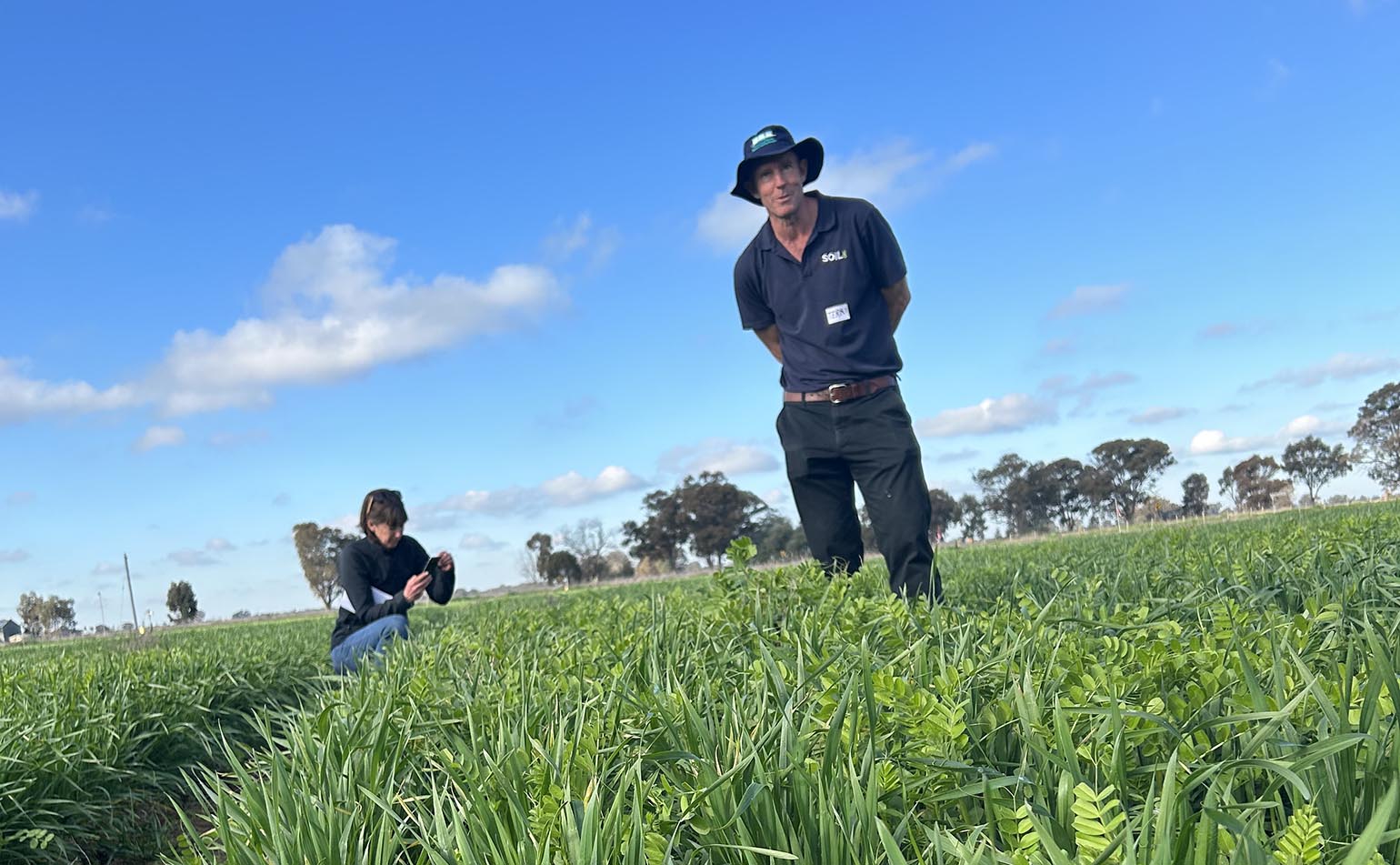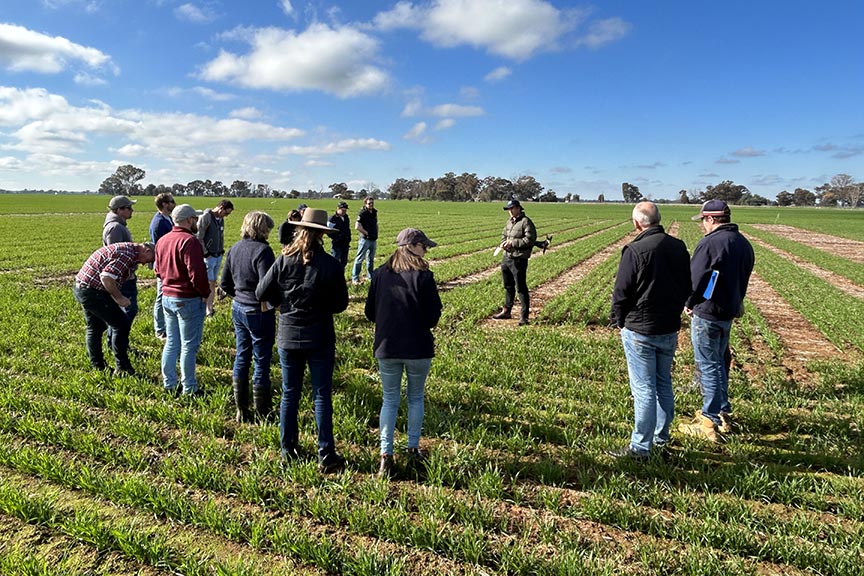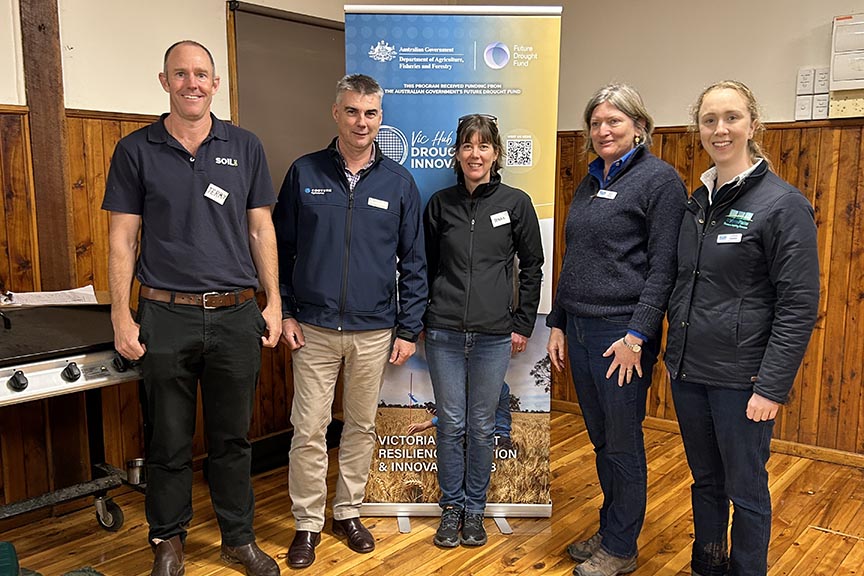Professor Terry Rose from Southern Cross University led a recently completed Soil CRC project to uncover how soil performance is affected by increased crop diversity, with promising results.
“Major cropping systems in Australia tend to have a low diversity of crop species in their rotations, which limits the diversity of carbon (or microbial food) inputs into soils and therefore, the diversity of soil microbial populations is often reduced,” Prof. Rose explained.
“Increasing the diversity of plants in these farming systems provides a diversity of carbon inputs into the soil, leading to an increased diversity in soil biology and a more resilient soil.”
The key challenge is finding economically viable ways to increase the plant diversity in the farming system, given the crops grown in the existing rotations are generally the most profitable and low-risk options.
“The Plant-based solutions to improve soil performance project investigated how soil performance and profitability are affected by increased crop diversity in rotational systems, in both broadacre grains and sugarcane industries.
“It also looked at the potential for plant-based solutions to improve soil performance through rhizosphere modification,” Prof. Rose said.
“Laboratory, glasshouse and small plot trials were conducted in the first phase of the research to develop a mechanistic understanding of the processes underlying potential improvements in soil function and productivity under novel practices.
“The project then established five long-term field sites across Australia to investigate the impact of different management practices on soil function and crop yields within local cropping systems,” he said.
The management practices and systems assessed were:
- Summer cover cropping in Australian southern cropping systems
- Temporary cereal-legume intercropping in southern cropping systems
- Oilseed-legume intercropping in southern cropping systems
- Use of perennial legumes in Western Australian cropping systems
- Use of cover crops during the plough-out phase of sugarcane farming systems in the wet tropics.
The sites were established in conjunction with our participant grower groups – Hart Field Site Group (SA), Facey Group (WA), Central West Farming Systems (NSW), Riverine Plains (Vic/NSW) and Herbert Cane Productivity Services (Qld).
“These grower groups provided ongoing feedback to ensure the research addressed their needs,” Prof. Rose said. “Growers were also able to observe the trials in their local regions, increasing their confidence in the research outcomes.”
Results
The project identified cover cropping in tropical sugarcane farming systems and temporary cereal-legume intercropping in southern Australian grain cropping systems as promising options for increasing plant diversity and maintaining productivity.
“Importantly, temporary cereal-legume intercropping offers potential to integrate legumes into the farming system with little need to change other farming practices, meaning it is easy to adopt,” Prof. Rose said.
Summer cover crops were found to have potential to be used tactically in southern Australian cropping systems (for example, in wet seasons, or where fallow groundcover is low), but may not be suitable every season because their water use can affect subsequent winter crop yields.
Prof. Rose explained the results provide an evidence base from which farmers can make management decisions around summer cover cropping, where previous decisions were made based on anecdotes or information from wetter temperate environments in the northern hemisphere.
And finally, oilseed-legume intercropping did not improve productivity over individual monoculture legume or canola crops in the seasons tested. The project team recommended subsequent studies should focus on reducing inputs in intercropping systems.
Next steps
Temporary cereal-legume intercropping, oilseed-legume intercropping, and summer cover cropping will be investigated further in subsequent years at two of the long-term trial sites to investigate longer-term impacts on soil performance and system productivity.
A new Soil CRC project kicked off in January 2023 and the three management practices will be further investigated until January 2026.
Find out more
This project will feature in the Program 4 plant-based solutions panel at the 2023 Soil CRC Participants Conference in Launceston later this month.
Terry Rose will be joined Felicity Gilbert of Wheatbelt NRM, David Minkey from WANTFA and Lawrence Di Bella of Herbert Cane Productivity Services to discuss the role of cover crops, summer crops and intercrops in improving soil. Register now to reserve your spot.
Can’t make the conference? Stay tuned for more research outputs or get into the detail with these related papers:
- Weed Suppression, Biomass and Nitrogen Accumulation in Mixed-Species and Single-Species Cover Crops in a Tropical Sugarcane Fallow
- Potential Nitrogen Contributions by Tropical Legume Summer Cover Crops in Mediterranean-Type Cropping Systems
- Prospects for summer cover crops in southern Australian semi-arid cropping systems
- Rooting depth and water use of summer cover crops in a semi-arid cropping environment
- Impact of wheat‑vetch temporary intercropping on soil functions and grain yield in a dryland semi‑arid environment
This Soil CRC project was delivered in partnership by researchers and staff from Southern Cross University, Murdoch University, Charles Sturt University and NSW Department of Primary Industries and the five grower groups listed above.



